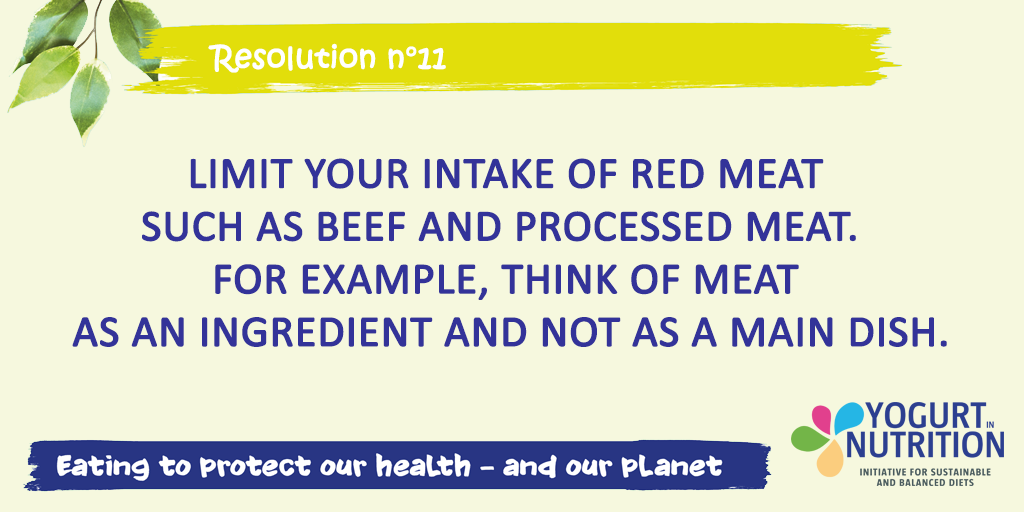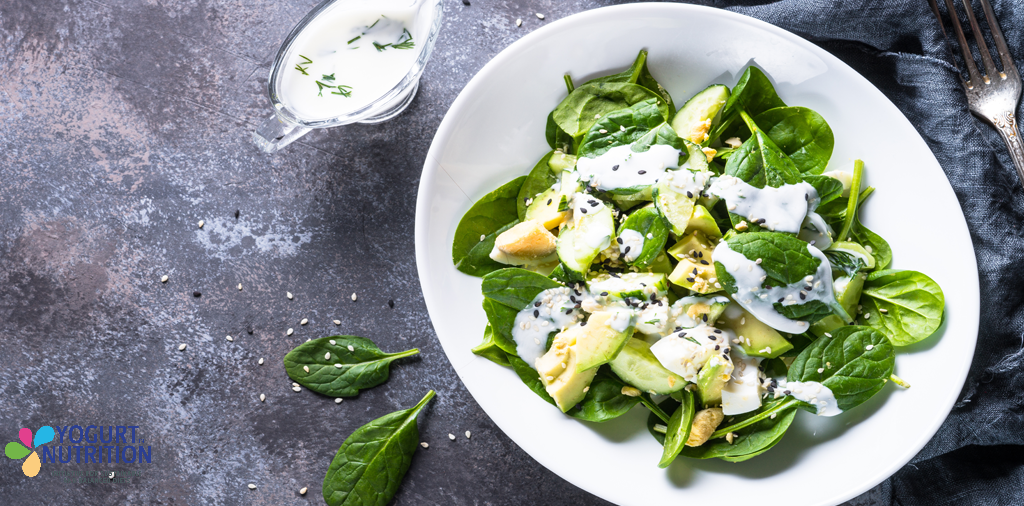At the Yogurt In Nutrition Initiative, we look forward to a more sustainable 2020. Based on all the science we’ve read and the materials we’ve published on the subject, we bring you 12 food resolutions to protect our health and our planet! For this month, we invite you to limit your intake of red meat and processed meat. For example, think of meat as an ingredient and not as a main dish.

Why and how to limit your intake of red meat and processed meat
Animal products seem to be responsible for most food-related carbon emissions. According to the World Resources Institute, red meat, mainly beef, uses more land and freshwater and generates more climate emissions per unit of protein than any other food. Given the huge burden on the environment of beef production, reducing its consumption is likely to play a key role in limiting the rise of global warming.
The FAO & WHO report recommends reducing meat consumption, particularly in wealthier countries where people typically eat too much meat. Eating too much red meat and particularly processed meat (which generally contains most of the time added sugar, food preservatives and additives) over the long term may increase the risk of stroke, heart disease and certain forms of cancer such as colon cancer. This is why, many institutions recommend to limit those foods for both environmental and health concerns.
In the other hand, animal products are a great source of high-quality proteins, vitamins, iron… Even in a plant-based diet, there are nutritional advantages that come from animal products. Consuming dairy products, for instance, has significant health benefits, provide nutrients while producing less GHE than red meat. Those foods concentrate nutrients and are far less polluting than red meat (5- to 6-times less per gram of protein). They appear to be a sustainable way to limit our meat consumption without nutritional damage. Dairy products have a lower environmental and health cost than beef and are also cheaper!
A more sustainable production of livestock, quantities should be incorporated in our food production system. This system can provide nutritional, ecological, and economic benefits by using ruminants to enhance the value of grasslands without over-exploiting our planet’s resources.
For more information, check out our Q&A about sustainable diets:
- What is a sustainable diet ?
- What would a more sustainable diet mean for you?
- What is a flexitarian diet ?
Sources:
-
FAO & WHO. Sustainable healthy diets guidelines principles. 2019.
-
Willett W, Rockström J, Loken B, et al. EAT-Lancet Commission Summary report: Food in the anthropocene: the EAT– Lancet Commission on healthy diets from sustainable food systems. Lancet. 2019;393(10170):447-492.
-
Food and Agriculture Organization of the United Nations. Tackling climate change through livestock. 2013.
-
Van Est L, Blom L, Peters S. Decreasing the environmental footprint of our diet – wrong paradigm? ‘Less animal more plant-based’. Translation from: Voeding Magazine. 2017:p15-22.
-
World Resources Institute. Ranganathan J, Vennard D, Waite R et al. Working paper: Shifting diets for a sustainable food future. 2016.
-
Poux X, Aubert PM: IDDRI. An agroecological Europe: a desirable, credible option to address food and environmental challenges. 2018.



